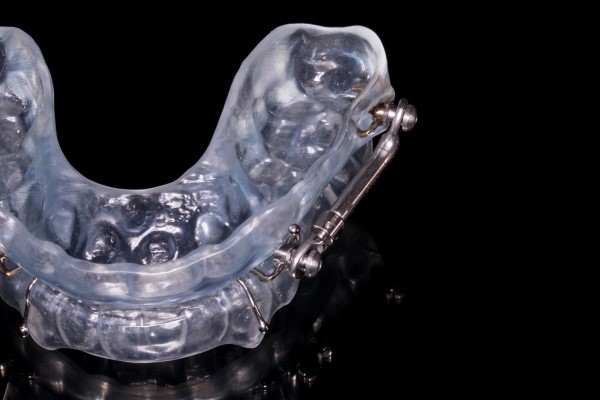What Is an Oral Appliance for Sleep Apnea?

Oral appliance therapy is one of the most common treatment options for snoring and obstructive sleep apnea. A custom-fit oral appliance can be used to treat sleep apnea and improve its symptoms. An oral appliance is a custom-made, mouthguard-like dental device. The device fits much like an orthodontic retainer or a sports mouthguard. It should be worn while you sleep.
An oral appliance
Oral appliance therapy is immensely beneficial for people with less severe sleep apnea. Many people prefer an oral appliance because it is easy to use, small and portable. These devices are also popular because they are comfortable to wear. There is a variety of dental devices that can help treat obstructive sleep apnea. Some common ones include mandibular advancement devices, mandibular repositioning appliances, mandibular advancement splints and tongue retaining devices.
How oral appliances work
A dental device prevents a person’s airway from collapsing. This is done by either supporting the jaw in a forward position or holding the tongue. A patient is supposed to be custom-fitted for a dental device in order for the treatment to be effective. To enhance the effectiveness of a device, regular follow-up visits with a dentist will be required to ensure the optimal fit of the dental device. The oral appliance should be adjusted over the course of several weeks. This is beneficial because it will ensure it is very effective and comfortable.
Making and fitting an oral appliance
Dental devices are made using physical or digital impressions and models of the teeth. These models have to be sent to a dental lab where the oral appliance will be made. Once it is ready, a patient has to return to the office of the dentist for a fitting. It will have to be adjusted by a dentist to maximize its effectiveness. A patient will also be taught how to clean and maintain the dental device. After the fitting, a doctor may schedule a sleep study for a patient to make sure the oral appliance is working properly.
Caring for an oral appliance
A patient is required to brush and floss the teeth before putting in an oral appliance every night. Fluoride gel can be prescribed by a dentist to help prevent tooth decay while using the device. Since plaque can build up on a dental device, it is important for a patient to clean it every day. It should be dried out each day before being used again. The appliance should also be kept safely away from not only children but also pets.
Takeaway
An oral appliance is a device that is usually recommended for treating obstructive sleep apnea. It helps to move the tongue or jaw forward, which increases the size of the upper airway and facilitates breathing. These dental devices have become increasingly popular because they are easy to use and care for, small and portable. It is important for a patient to get fitted by a qualified dentist and to see the dentist frequently to periodically adjust the device and monitor any problems. If you have any questions about oral appliances, talk to your doctor or dentist.
Request an appointment here: https://familychoicedentistry.com or call Family Choice Dental at (505) 634-5657 for an appointment in our Albuquerque office.
Check out what others are saying about our dental services on Yelp: Oral Appliance in Albuquerque, NM.
Related Posts
If you are thinking about wisdom teeth extraction, now might be the right time for this procedure. These third molars can create problems in the mouth, both cosmetically and for your health. It is often more sensible to take out the teeth before they ever emerge. Doing so can help you avoid many of the…
Wisdom teeth are notorious for not coming in well and leaving your mouth feeling crowded. There are other health concerns and cosmetic issues that can arise when these teeth are impacted. It should not be a surprise why dentists frequently recommend that these teeth come out, often before they erupt. If you decide not to…
Unlike other teeth, wisdom teeth do not show up until you are around age 20. Some people get them as early as age 17, while other people may not see them erupt until age 25. In either case, these third molars can cause troubling issues cosmetically and for your oral health. Your dentist will examine…
Dental crowns play a central role in modern restorative dentistry, offering durable protection for damaged teeth while restoring natural function. Anyone preparing for this treatment benefits from understanding the steps involved in the dental crown process and the advantages it provides.The dental crown process begins with an examination performed by a dental professional. During this…
